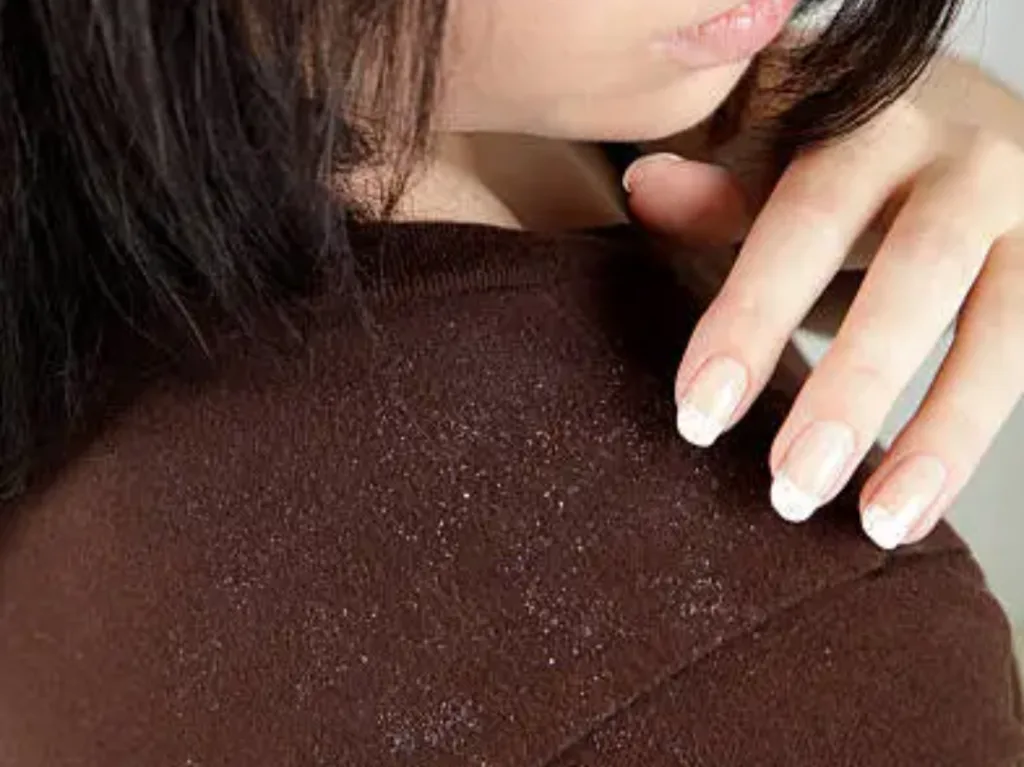Persistent Dandruff: Causes and Solutions
Dandruff is more than just a cosmetic issue—it’s a common scalp condition that can affect one’s self-esteem, comfort, and overall quality of life. While the occasional flakes might be manageable with over-the-counter treatments, persistent dandruff can be far more challenging. At Scalp to Face Boutique, Lydia153 Houston, we’ve helped individuals with varying degrees of dandruff, even the most difficult cases, by focusing on scalp health and restoring balance to the skin’s natural cycle. In this blog, we’ll explore what causes persistent dandruff, why it can be so difficult to manage, and how we can provide holistic solutions.
Causes of Persistent Dandruff
There are numerous reasons why dandruff can persist, despite the use of shampoos and other treatments. Understanding the underlying cause is key to treating it effectively.
Skin Conditions:
Conditions like eczema and psoriasis can cause dandruff-like symptoms. These skin conditions cause inflammation, redness, and excessive shedding of skin cells, resulting in flaky, irritated scalps. Because these conditions are chronic, they require ongoing treatment to keep symptoms under control.
Fungal Overgrowth (Malassezia):
The scalp naturally hosts various microorganisms, including yeast-like fungi. One common culprit in persistent dandruff is Malassezia, a type of fungus that can live on the scalp without causing issues for most people. However, an overgrowth of Malassezia can irritate the scalp, leading to increased shedding of skin cells, oil buildup, and inflammation. The result? Persistent dandruff that can be hard to manage.
Environmental Factors:
Weather conditions can exacerbate dandruff symptoms. Cold, dry air can cause the scalp to dry out, leading to itching and flaking. On the other hand, humid conditions can promote fungal overgrowth, which may also lead to more persistent dandruff issues.
Interrupted Skin Barrier Cycle:
One of the lesser-known causes of persistent dandruff is an interruption in the natural skin cycle, specifically in the epidermis—the outermost layer of the skin. The epidermis is responsible for protecting us from germs and environmental stressors. Within the epidermis, the outermost layer, known as the stratum corneum, usually renews itself every 28 days. However, various factors, such as stress, poor diet, or underlying skin conditions, can speed up this cycle, causing the skin to produce an immature protective layer.
In this scenario, the body’s homeostasis mechanism identifies the inefficient protection from the immature dead cell layer and responds by generating more immature dead cells. This results in excessive dead skin cells on the scalp, contributing to persistent dandruff. Without intervention to normalize the skin barrier cycle, this can become a continuous, difficult-to-control problem.
At-Home Remedies: Do They Work?
Many people turn to home remedies in hopes of managing their dandruff before seeking professional help. While some remedies may provide relief for mild cases, they might not be effective for persistent dandruff.
Essential oils like tea tree oil, lemongrass oil, and coconut oil can offer benefits due to their antifungal and soothing properties. Tea tree oil has antimicrobial effects that may help reduce the fungus Malassezia on the scalp, while lemongrass oil can also help alleviate symptoms. Coconut oil is known for its moisturizing properties, which can combat dryness that contributes to dandruff. Aloe vera is another popular choice for its soothing effects on inflammation and itchiness. However, it’s essential to dilute these oils properly before applying them to avoid irritation.
While some at-home remedies like alkaline shampoos and baking soda are often recommended, they can actually do more harm than good for a slightly acidic scalp. These strong alkaline substances may remove loose dandruff flakes but can also damage the scalp’s natural protection barrier over time. Instead of focusing solely on cleaning, it’s crucial to restore balance to the scalp’s pH levels to ensure long-term health.
The Problem with Persistent Dandruff
While at-home treatments may help manage mild dandruff, they often aren’t enough to tackle persistent dandruff caused by underlying issues. As mentioned earlier, factors such as fungal overgrowth, skin conditions like eczema or psoriasis, and interruptions in the skin barrier cycle can contribute to ongoing dandruff problems. These deeper issues need to be addressed for long-term relief.
At Scalp to Face, we approach dandruff not just as a surface issue but as a sign of an underlying imbalance in scalp health. Our treatments go beyond just masking the symptoms; we work to restore the scalp’s natural balance and support healthy skin regeneration.
How Scalp to Face Can Help
If you’ve tried various shampoos and home remedies without success, it’s time to consider a more comprehensive approach. At Scalp to Face, we specialize in restoring scalp health through science-based, holistic treatments.
One of the difficult cases we often see is when the skin’s natural protection barrier is compromised due to an accelerated skin cycle. When the stratum corneum (the outermost layer of the epidermis) fails to mature properly, the body produces an excessive number of immature skin cells, leading to persistent dandruff. By targeting the root cause—whether it’s fungal overgrowth, an interrupted skin cycle, or a skin condition—we help normalize the scalp’s health.
Our treatments involve a combination of advanced technology and natural ingredients designed to soothe irritation, restore the scalp’s natural balance, and improve its protective barrier. Whether your dandruff is caused by dry skin, fungal overgrowth, or an underlying skin condition, we have the expertise and solutions to help.
When to Seek Professional Help
Dandruff can range from a minor inconvenience to a more serious condition that affects your quality of life. If your dandruff is persistent, doesn’t improve with over-the-counter treatments, or is accompanied by symptoms like redness, swelling, or hair loss, it may be time to seek professional help.
At Scalp to Face, we offer personalized scalp health assessments to identify the underlying causes of your dandruff and recommend tailored treatments to address your unique needs. With years of expertise in scalp care, we’ve successfully helped clients manage even the most stubborn cases of dandruff.
Final Thoughts
Dandruff is more than just a cosmetic issue—it’s a sign that your scalp needs attention. Whether it’s due to a skin condition, fungal overgrowth, or an imbalance in your skin’s natural cycle, persistent dandruff can be frustrating to deal with. At Scalp to Face, we’re committed to helping you restore your scalp health and find relief from dandruff through our comprehensive, holistic approach. If you’re ready to take control of your scalp health, schedule a consultation with us today.

